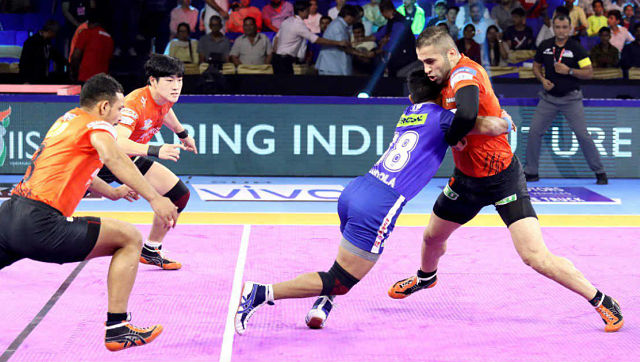Buoyed by the steady growth of the Pro Kabaddi League over the past seven years, the PKL will become the first Indian league, outside of cricket’s Indian Premier League, to offer their media rights via an open-market auction process next month. While traditional broadcast rights of the league for the next five years will be up for grabs, bidders can also snap up PKL’s digital rights which include its virtual reality rights, and the league’s gaming rights, which will include rights to operate a fantasy league, the opportunity to create mobile, computer or console games, and an eSport around PKL. The reserve price (the minimum amount acceptable for a winning bid) for the whole five-year package has been set at a hefty Rs 900 crore, which pales in comparison to the Rs 16,347.5 crore that STAR India paid the BCCI in September 2017 for the consolidated media rights of the IPL, but is an eye-watering starting sum for an Indian sports league not based around cricket. “I would not like to speculate on what should be the right value, but our confidence (in how valuable the PKL media rights could be) is revealed by the reserve price set for the auction: Rs 900 crore for a five-year deal. This translates into Rs 180 crore per year. These would be very impressive figures for any sports league in India outside cricket,” CEO of Mashal Sports and League Commissioner of PKL Anupam Goswami told Firstpost earlier this week. “This reflects the evolution of Pro Kabaddi as a high-quality sports media asset. While cricket is right up there, PKL does show some of the strongest media values. It has a viewership of 328 million and a watch time of 70 billion. These are very significant figures for any sports league in India. We should also understand what is the implication of having 328 million TV viewers. Organically, there is going to be engagement on emerging media platforms.” Rising franchise costs, growing expectations As the league has grown in stature, franchise expenses also have risen. There has been a five-fold increase in the average player salary — from Rs 4.5 lakh in Season 1 to Rs 23.7 lakh in Season 7. The average total player purse available for teams in auctions has also gone up from Rs 60 lakh to Rs 4.4 crore. In 2017, with four more teams being added to the existing eight, travel costs have also increased. Telugu Titans owner Srinivas Sreeramaneni told Sportstar in an interview last year that teams were investing around Rs 14-15 crore in their teams each season, but recovering only Rs 6.5 lakh from the broadcast rights deal. According to media reports, the need to have an open market auction arose when franchises rejected the broadcast package offer from STAR India, which has been the broadcast partner of the league since its inception in 2014, and asked Mashal Sports to start the process for an open auction. Star owns a 74 percent stake in Mashal Sports. A report in The Economic Times also stated that STAR India had offered to pay each team Rs 14-Rs 15 crore a year while team owners were looking at Rs 22 crore per year. “I’m not going to confirm or deny any of those numbers. These are speculative figures in media,” Goswami told Firstpost. He did state that the media rights share agreement between Mashal Sports and franchises would still apply when the current media rights deal starts from Season 8. Virtual reality, eSports rights The league has been emboldened by the results of the experiment carried out five years ago by Hotstar, when it streamed games of the Kabaddi World Cup in 3D Virtual Reality, which users could experience using a VR headset like Google Cardboard or Samsung Gear VR. “Virtual reality is an emerging genre. It has a long way to go, but it is definitely an emerging genre,” said Goswami. Over the years, he said, gaming companies had approached Mashal Sports, the owners of the league, to start games around the sport. “It is very clear that the emerging genres of entertainment and sports media are exploring options on kabaddi,” he said. “Some of the world’s leading gaming companies have been reaching out to us from time to time. That’s why we have seen the opportunity to go to the market with a very contemporary and forward-looking set of media rights, across broadcast, digital, and gaming. “All sports (leagues) will have to show capacity to engage and offer exciting content to emerging media platforms. For the growth of the sport, we have to discover and exploit the opportunities in all media, including emerging media. Broadcast will remain very fundamental to the growth of sport of kabaddi for a long time. So we do need very strong broadcast partners. But we are looking for strong partners in areas like gaming.” The PKL media rights e-auction will be held on 5 April.
Amit Kamath is with the sports desk in Mumbai. He covers Olympic sports like wrestling, shooting, and boxing besides also writing about NBA and kabaddi. In 2014, he was declared the runner-up in the sports category at the National RedInk Award for Excellence in Journalism for his story on Sports Authority of India's Kandivli campus where world-class athletes had to put up with appalling conditions. He was a Robert Bosch Media Ambassador in 2019.
)